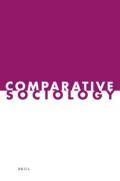
Abstract:
There is an ongoing debate over whether the stability of working lives in Germany has declined in recent decades. In this piece, we contribute to the literature by arguing that subjective mobility perceptions, hence individuals’ self-reported mobility desires and experiences, should receive more attention in the debate. While it is, for example, well known that German reunification affected worklife mobility of East Germans through high unemployment and firm mobility, little is known about subjective mobility desires, specifically in an East-West German comparative perspective. Using a retrospective cross-sectional data set from 2005, we therefore investigate East-West German differences in retrospective and future mobility desires and subjectively reported mobility experiences and expectations. We also examine if there is evidence for East-West German differences in voluntary versus involuntary employment mobility. Our findings indeed show that retrospectively reported desires for stable working lives are more prevalent among East Germans. In addition, we find suggestive evidence for elevated levels of undesired firm mobility and employment interruptions among East Germans born between 1945 and 1965, and for increases in undesired employment interruptions and firm mobility among younger West German but not East German men. These latter results serve as suggestive evidence for future hypothesis building only, since our data does not provide information on the desirability of specific mobility events but on cumulative experiences and retrospective mobility desires only.